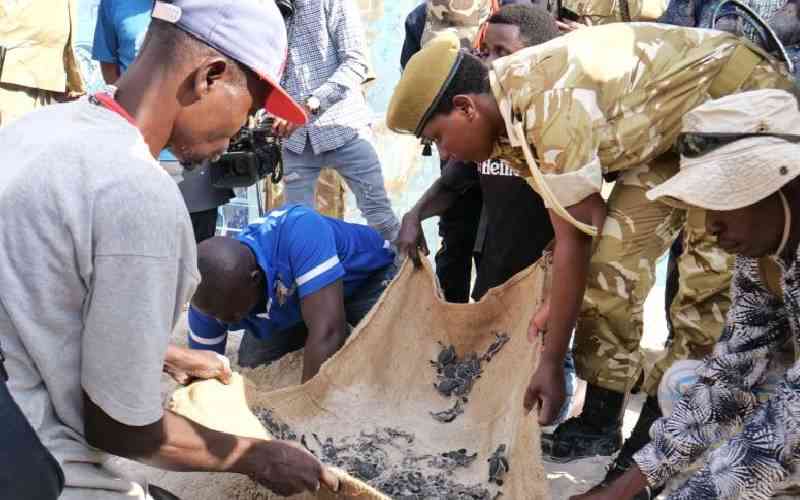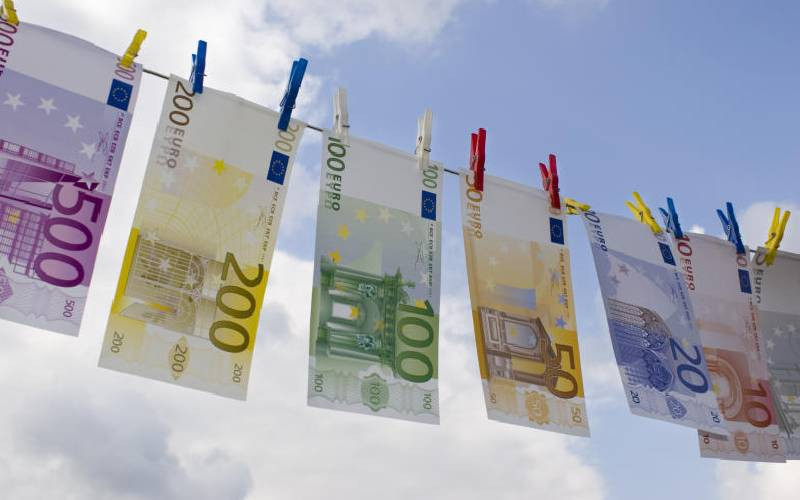
At least 28 sea turtles die every month along the Marereni-Ngomeni beach shoreline in Kilifi County, raising fears that the endangered species could soon be extinct.
A marine conservation group in Watamu is now calling for urgent actions to reduce all mortality of sea turtles, including fishing operations.
Covec organisation manager Edward Mwamuye has revealed a dangerous drop in the number of nesting due to destroyed habitats along the coastline.
Mwamuye says fishermen have been fishing the sea turtles because of the notion that it boosts men's libido.
In Kilifi many men believe consuming sea turtle eggs can make them last longer in bed.
"Men think that by eating turtle eggs they will have more sexual pleasure. This myth has led to sea turtle egg poaching and overfishing of sea turtles," he said.
Locals also believe that turtle fat can treat asthma, TB and impotence. The fat is also believed to boost libido.
"There are many threats to sea turtles, both in the Pacific and in the Caribbean: illegal egg harvesting, over-consumption of their meat and their shells. They are used for combs and clothing," he said.
"During this high season, every month about 28 sea turtles are being fished and eaten. Especially in areas of Ngomeni, Marereni and other shorelines," Mwamuye added.
General coordinator of the Kenya Nature Conservation and Wildlife Service in Kilifi County, Francis Kagema, said the turtles' breeding habitat is being destroyed and they are not breeding in a good way.
"If they are not breeding and the ones we have are being eaten, then its population will decrease in no time," he said.
According to a census done by the Kenya Wildlife Service (KWS) in 2023 along the coastline, the population of sea turtles stands at 450.
The report stated that balloons, plastic bags, recreational fishing line and food wrappers are killing thousands of marine animals as they eat plastic items that later perforate internal organs or become entangled and drown, Oceana.
Many turtle species have also had their habitat destroyed by over-development of holiday resorts, while some are killed accidentally by fishing nets and other equipment.
Stay informed. Subscribe to our newsletter
The study also named a wide variety of plastic trash that ends up in oceans and kills turtles, from plastic twine to nylon fishing line to six-pack rings from canned drinks, plastic packaging and discarded anchor lines.
Animals entangled in plastic can choke to death, lose their limbs, injure themselves, become trapped or simply eat too much garbage to be able to consume regular meals.
Dead animals full of trash illustrate how pieces of fishing gear and household debris can clog up an animal's stomach to the point that they starve to death.







